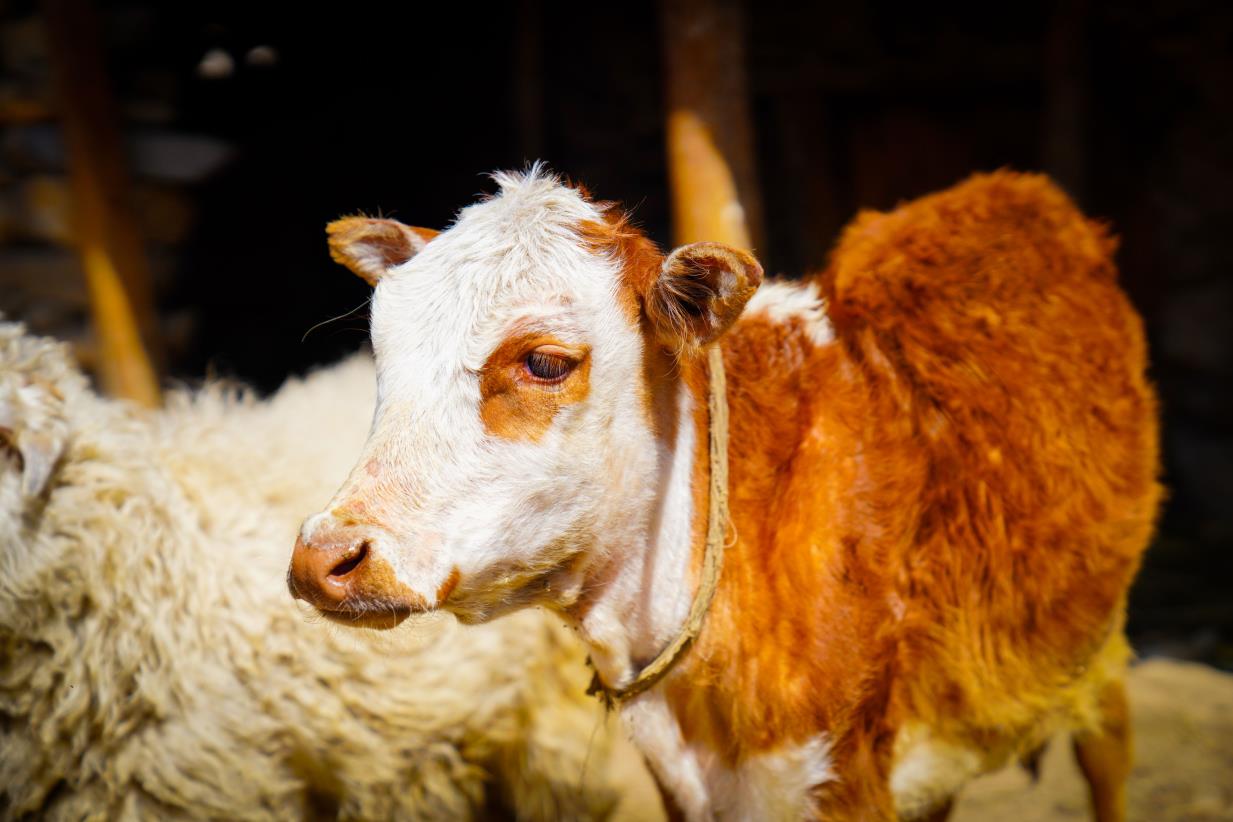FAO launches bilingual training course on Lumpy Skin Disease preparedness for NENA region

5 July 2023, Cairo – The Food and Agriculture Organization of the United Nations (FAO) Virtual Learning Center for the Near East and North Africa (VLC-RNE), has designed an an online training course on Lumpy Skin Disease. The training is designed to support governmental and private veterinarians and specialist staff. .
Lumpy skin disease (LSD) is an internationally spreading disease that affects cattle, Asian water buffaloes, and some wildlife species. It is a vector-borne pox virus that is characterized by the appearance of skin nodules. It has an impact on animal welfare, causes significant economic impacts due to loss of milk and beef production and reproductive losses, and is costly to control and eradicate. .
"Lumpy skin disease is one of the priority diseases in the NENA region and represents a major threat to cattle and cattle production, with substantial impacts on livelihoods and food security, particularly among smallholders,” said Dr. Friederike Mayen, Senior Livestock Development Officer at FAO-RNE.
The content of this course was originally developed by the Food and Agriculture Organization of the United Nations (FAO) Regional Office for Europe and Central Asia (REU), together with the European Commission for the Control of Foot-and-Mouth Disease (EuFMD) and the Friedrich-Loeffler-Institute, Germany.
It has now been customized, in collaboration with regional and international experts, to fit regional situations and language contexts. The course combines convenient self-paced study with a unique opportunity to discuss and network with international and national experts. The overall objective of the course is to build knowledge and skills for diagnosis, prevention, and response to LSD outbreaks among technical specialists and field veterinarians. The expectation is that an improvement in early detection and response to LSD outbreaks will lead to a gradual reduction in the impact of the disease on livestock production and productivity in the region.
“The course will improve personal skills among public and private stakeholders using effective e-learning technology that will contribute to preparedness and control efforts for LSD. The course is tailored to consider regional needs and context,'' ADDED Rehab Elbassal, Coordinator for the VLC of the Near East and North Africa.
Course outline:
The course is conducted entirely online through the Virtual Learning Centers (VLC) platform. It is a tutored course and will take approximately 12 hours over a four-week period. Up to 400 participants from 19 member countries in the NENA region will attend the course simultaneously. The course will start on August 1, 2023, with an interactive webinar where participants meet with their trainers and learn about the overall course content, as well as the LSD situation globally and in the region. The trainees will go on to learn through six interactive online modules and a case study, covering the impact of LSD, epidemiology, pathogenesis, clinical and laboratory diagnosis, outbreak investigation, prevention, surveillance, control, etc. This interactive course is enriched with audiovisual materials and self-test questions. During the course, expert trainers will be available to answer trainees’ questions via a discussion forum and will also lead interactive discussions.
A specific topic is covered during each week of the four-week program using a discussion forum. Trainers post questions to challenge participants and deepen their understanding of the course materials. The course ends with a final assessment and a closing webinar covering topics that participants found difficult or that sparked the most discussion in the forum. Participants who complete the coursework with a satisfactory comprehensive assessment are awarded a certificate.
About the FAO VLC -RNE
The FAO Virtual Learning Center for the Near East and North Africa (VLC-RNE) is one of the virtual hubs established to develop and improve Animal Health and Production and One Health capacities in the NENA region. Our mission is to provide our trainees with access to inclusive, engaging, and high-quality training using a variety of methodologies. The VLCs directly contribute to the Sustainable Development Goals (SDGs). The VLCs’ trainings contribute to improving the productivity and sustainability of agriculture and food production systems by building the skills of a range of actors along the value chain (SDGs 1: no poverty and SDG 2: zero hunger). In addition, trainees' are able to study the courses free of charge and at a time and place suitable to them to ensures access for all (SDG 10: reduced inequalities). Furthermore, the VLCs consider the impacts of gender on access to online training resources with the aim of understanding and bridging any gaps that exist (SDG 5: achieve gender equality).
